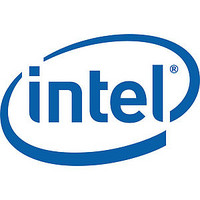87C196JV Intel Corporation, 87C196JV Datasheet - Page 12

87C196JV
Manufacturer Part Number
87C196JV
Description
ADVANCED 16-BIT CHMOS MICROCONTROLLER
Manufacturer
Intel Corporation
Datasheet
1.87C196JV.pdf
(38 pages)
87C196KR, JV, JT, JR, CA Microcontrollers — Automotive
12
Table 2. Pin Descriptions (Sheet 1 of 2)
V
V
V
V
ANGND
XTAL1
XTAL2
P2.7/CLKOUT
RESET#
P5.7/BUSWIDTH
NMI
P5.1/INST
EA#
P5.0/ALE/ADV#
P5.3/RD#
P5.2/WR#/WRL#
CC
SS
REF
PP
Symbol
Main supply voltage (+5 V).
Digital circuit ground (0 V). There are three V
connected to a single ground plane.
Reference for the A/D converter (+5 V). V
analog portion of the A/D converter and the logic used to read Port 0. Must be
connected for A/D and Port 0 to function.
Programming voltage for the EPROM parts. It should be +12.5 V for programming.
It is also the timing pin for the return from powerdown circuit. Connect this pin with
a 1 µF capacitor to V
may be tied to V
Reference ground for the A/D converter. Must be held at nominally the same
potential as V
Input of the oscillator inverter and the internal clock generator.
Output of the oscillator inverter.
Output of the internal clock generator. The frequency is ½ the oscillator frequency.
It has a 50% duty cycle. Also LSIO pin when not used as CLKOUT.
Reset input to the chip. Input low for at least 16 state times will reset the chip. The
subsequent low to high transition resynchronizes CLKOUT and commences a 10-
state time sequence in which the PSW is cleared, bytes are read from 2018H and
201AH loading the CCBs, and a jump to location 2080H is executed. Input high for
normal operation. RESET# has an internal pullup.
Input for bus width selection. If CCR bit 1 is a one and CCR1 bit 2 is a one, this pin
dynamically controls the Bus width of the bus cycle in progress. If BUSWIDTH is
low, an 8-bit cycle occurs. If BUSWIDTH is high, a 16-bit cycle occurs. If CCR bit 1
is “0” and CCR1 bit 2 is “1”, all bus cycles are 8-bit; if CCR bit 1 is “1” and CCR1 bit
2 is “0”, all bus cycles are 16-bit. CCR bit 1 =”0'' and CCR1 bit 2 = “0” is illegal.
Also an LSIO pin when not used as BUSWIDTH.
A positive transition causes a non-maskable interrupt vector through memory
location 203EH.
Output high during an external memory read indicates the read is an instruction
fetch. INST is valid throughout the bus cycle. INST is active only during external
memory fetches. During internal [EP]ROM fetches INST is held low. Also LSIO
when not INST.
Input for memory select (External Access). EA# equal to a high causes memory
accesses within the [EP]ROM address space to be directed to on-chip EPROM/
ROM. EA# equal to a low causes accesses to these locations to be directed to off-
chip memory. EA# = +12.5 V causes execution to begin in the Programming
Mode. EA# latched at reset.
Address Latch Enable or Address Valid output, as selected by CCR. Both pin
options provide a latch to demultiplex the address from the address/data bus.
When the pin is ADV#, it goes inactive (high) at the end of the bus cycle. ADV#
can be used as a chip select for external memory. ALE/ADV# is active only during
external memory accesses. Also LSIO when not used as ALE.
Read signal output to external memory. RD# is active only during external memory
reads. LSIO when not used as RD#.
Write and Write Low output to external memory, as selected by the CCR, WR# will
go low for every external write, while WRL# will go low only for external writes
where an even byte is being written. WR#/WRL# is active during external memory
writes. Also an LSIO pin when not used as WR#/WRL#.
SS
.
CC
.
SS
and a 1 M resistor to V
Name and Function
REF
SS
is also the supply voltage to the
CC
pins, all of which MUST be
. If this function is not used, V
Datasheet
PP











